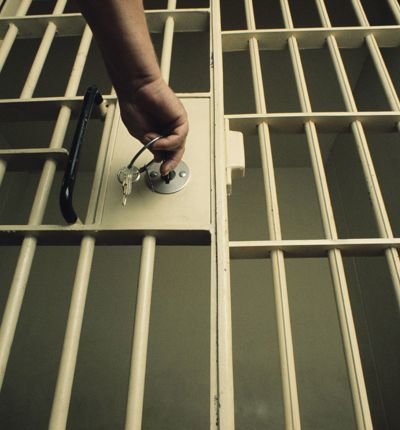
Pressure mounts on Government to properly address threat posed by Covid-19 to vulnerable prisoners
Maya Grantham and Benjamin Burrows consider the Government's progress in addressing the risk of Covid-19 in prisons, thinking about the impact of social distancing measures on more vulnerable prisoners.
Posted on 06 May 2020
In our recent blog we discussed why an outbreak of Covid-19 in our prisons would be catastrophic, and particularly difficult to bring under control. Here we consider the success of the Government’s policies to date and how a group of prisoners with particular needs appears to have been forgotten in plans for dealing with Covid-19.
Government policies to date
On 27 April 2020, it was reported that only 33 out of 4,000 eligible prisoners had been released early under the policies announced by the Government on 31 March and 4 April 2020. Therefore, despite acknowledging the need to rapidly decrease the prison population, the Government’s policies have failed to address the very real threat being posed by Covid-19 to prisoners.
By comparison, governments in other countries around the world would appear to have taken a more proactive approach, and have released prisoners early in much larger numbers. Iran announced the release of 85,000 prisoners in mid-March, and Kenya announced the release of 5,000 prisoners in early April, despite only having around 110 cases of the virus at that time. New York alone has announced the release of over 1,000 prisoners.
On 9 April 2020, the Government implemented a new policy which makes provision for the early release of certain vulnerable prisoners on temporary licence during the Covid-19 pandemic. It suggests that prisons should be taking steps to identify the following prisoners who may be eligible for release: pregnant women; prisoners with their baby in custody; and those defined by the NHS guidelines as “extremely vulnerable” to Covid-19.
“Extremely vulnerable” prisoners include solid organ transplant recipients, people with specific cancers, those with severe respiratory conditions or rare diseases, and people on immunosuppression therapies.
It remains to be seen how actively prisons are identifying prisoners who may be now eligible for early release, and then how many of those prisoners are actually being released. However, given the numbers of releases under the previous policies, it seems unduly optimistic to think that this new policy will result in the early release of sufficient numbers of vulnerable prisoners to address the threat of Covid-19.
Indeed, the applications made by the prison law team on behalf of prisoners who fall within the NHS definition of “extremely vulnerable” have been initiated by the prisoner, rather than the prison, and have then been met with delays and resistance.
Forgotten group
There appears to be a group of vulnerable prisoners that the Government’s latest policy has forgotten about. The prison law team is hearing reports from prisoners who have significant disability and social care needs and who, whilst not falling within the NHS’s definition of extremely vulnerable, are rendered especially vulnerable under the restricted prison regime in place to combat the pandemic. Those prisoners are seemingly not captured by the Government’s new policy.
According to the Government, the usual prison regime has been “paused temporarily to apply social distancing”. Although measures will vary between prisons, for many prisoners this means being locked in their cell for over 23 hours per day – a level of isolation usually reserved for the most dangerous prisoners.
A restricted regime is of course difficult for everyone in a prison, including the staff. However, prisoners who rely heavily on other prisoners or staff for care and support with the most fundamental of disability or social care needs are faring particularly badly.
The prison law team acts for a number of prisoners with significant physical or sensory impairments. Ordinarily, these prisoners would rely upon other prisoners, employed as carers, to help them with crucial daily tasks, such as getting them to the showers or the exercise yard, and helping them to read and write.
To receive that help now, these prisoners must come into close contact with other prisoners or staff. Therefore, they are having to make the impossible choice of either putting themselves and others at an increased risk of contracting the Covid-19 virus, or not having their fundamental needs met.
Either way, these prisoners are being put at disadvantage and increased risk of harm compared to other prisoners without these needs. Given the risk of the virus, and the understandable reluctance of others to help them because of it, many prisoners with fundamental disability or social care needs are likely going without the crucial help that they need.
Unfortunately, Government policy to date does not adequately address prisoners like these, whose vulnerability arises from their disability and social care needs not being met under the current restricted prison regime, as opposed to arising from an underlying medical condition.
As pressure continues to mount on the Government to create more space in prisons to manage the Covid-19 threat, we ask whether vulnerable prisoners who cannot effectively isolate due to their disability and social care needs should be the next group to be considered for early release?
In the absence of such a policy, it is arguable that such prisoners are facing a particular disadvantage, and that proper regard has not been had to the impact that it is having upon them.



